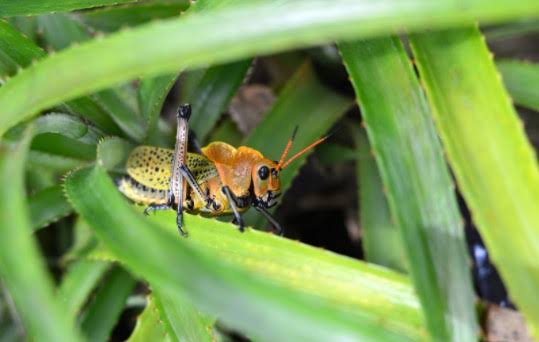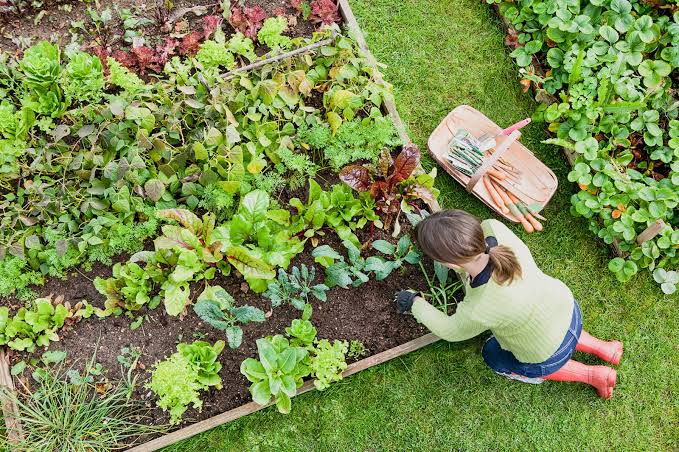Controlling pests naturally in the garden is a wise and eco-friendly approach to maintaining a healthy and thriving outdoor space. One effective method is companion planting, where certain plants are grown together to deter pests. For instance, planting marigolds alongside vegetables can help keep nematodes at bay. Additionally, herbs like basil and rosemary act as natural repellents for mosquitoes and other insects.
Introducing beneficial insects, such as ladybugs and lacewings, can be another smart strategy. These friendly bugs prey on harmful pests like aphids, helping to maintain a natural balance in the garden. Creating a welcoming habitat for these beneficial insects involves incorporating diverse plant species and minimizing the use of chemical pesticides.
Furthermore, practicing proper garden hygiene is crucial. Regularly removing weeds and debris deprives pests of hiding spots and breeding grounds. Crop rotation is another simple yet effective method; it helps prevent the buildup of specific pests in the soil by changing the location of crops each season.
Employing neem oil, derived from the neem tree, is a natural and safe pesticide. It disrupts the life cycle of pests and acts as a repellent without harming beneficial insects. Neem oil is an excellent alternative to synthetic pesticides, promoting a healthier garden ecosystem.
However, embracing natural methods for pest control in the garden not only safeguards the environment but also contributes to the overall well-being of the plants and the ecosystem.
By incorporating companion planting, attracting beneficial insects, maintaining proper hygiene, and utilizing natural solutions like neem oil, gardeners can achieve a harmonious balance between protecting their plants and preserving the natural order of the garden.
Read Also: Uses of Pig Meat and Pig Marketing
How to Control Pests Naturally in Garden

Controlling pests naturally in the garden involves adopting eco-friendly practices to maintain a healthy and thriving outdoor space. One effective method is companion planting, where certain plants are grown together to deter pests. For example, marigolds planted alongside vegetables can help keep nematodes away.
Beneficial insects play a vital role in natural pest control. Introduce ladybugs and lacewings to your garden, as they prey on harmful pests like aphids. Creating a habitat for these beneficial insects involves planting diverse species and minimizing the use of chemical pesticides.
Proper garden hygiene is crucial. Regularly remove weeds and debris to deprive pests of hiding spots and breeding grounds. Crop rotation is a simple yet effective method to prevent the buildup of specific pests in the soil by changing the location of crops each season.
Consider using neem oil, derived from the neem tree, as a natural and safe pesticide. It disrupts the life cycle of pests and acts as a repellent without harming beneficial insects. Neem oil is an excellent alternative to synthetic pesticides, promoting a healthier garden ecosystem.
In addition, embracing natural methods for pest control not only safeguards the environment but also contributes to the overall well-being of plants and the ecosystem. By incorporating companion planting, attracting beneficial insects, maintaining proper hygiene, and utilizing natural solutions like neem oil, you can achieve a harmonious balance in your garden.
Simple Effective Methods to Control Pest Naturally in the Garden
Let’s see some simple and effective methods to maintain a healthy garden without resorting to harmful chemicals.
1. Beneficial Insects: Invite friendly insects like ladybugs, lacewings, and predatory beetles to your garden. They feast on harmful pests, acting as natural pest controllers. You can attract them by planting flowers like marigolds and daisies.
2. Companion Planting: Some plants can be great friends to each other. For instance, planting basil near tomatoes can deter pests that often trouble tomato plants. Research and discover which plants make good companions to keep pests at bay.
3. Neem Oil: Neem oil, derived from the neem tree, is a natural pesticide. It disrupts the life cycle of pests without harming beneficial insects. Mix it with water and spray it on your plants, especially the undersides of leaves where pests often hide.
4. Diatomaceous Earth: This powdery substance is a natural and harmless way to control pests. Sprinkle diatomaceous earth around the base of plants. It acts like tiny glass shards to insects, causing them to dehydrate and die.
5. Homemade Pest Sprays: Create your own pest repellent sprays using ingredients from your kitchen. Mix water with garlic, onion, or pepper to create a natural deterrent. Spray this mixture on your plants to keep pests away.
6. Crop Rotation: Rotate your crops each season to confuse and disrupt the life cycles of pests. This simple technique can help prevent the buildup of specific pests in the soil, reducing the need for chemical interventions.
7. Handpicking: Keep a keen eye on your plants and remove pests by hand when you spot them. This hands-on approach can be time-consuming but is an effective way to control small infestations without resorting to chemicals.
8. Healthy Soil: A well-nourished soil promotes strong, healthy plants that are more resilient to pests. Add organic matter, like compost, to improve soil structure and provide essential nutrients to your plants.
9. Yellow Sticky Traps: Hang yellow sticky traps around your garden to attract and catch flying pests like aphids and whiteflies. The bright color lures them in, and the sticky surface prevents them from causing harm to your plants.
10. Beneficial Nematodes: Introduce beneficial nematodes to your soil. These microscopic organisms feed on harmful pests like grubs and larvae, naturally controlling their population.
By incorporating these natural pest control methods, you can maintain a thriving garden while respecting the delicate balance of nature. Remember, a healthy garden is not just about the plants you see but also the vibrant ecosystem that supports them.
Read Also: Swine Diseases and their Prevention Measures
Benefits of Using Natural Methods to Control Pest in the Garden

Using natural methods to control pests in the garden offers numerous benefits:
1. Environmentally Friendly: Natural pest control methods do not rely on harsh chemicals that can harm the environment, water sources, or non-target organisms. It helps maintain a balanced ecosystem in your garden.
2. Safe for Beneficial Insects: Unlike chemical pesticides, natural methods often target specific pests without harming beneficial insects like bees and ladybugs. This promotes a healthier and more diverse garden ecosystem.
3. Reduced Health Risks: Natural pest control minimizes the exposure of harmful chemicals to you, your family, and pets. It eliminates the risks associated with chemical residues on fruits, vegetables, and in the soil.
4. Sustainable Gardening: Natural methods support sustainable gardening practices by preserving soil health and preventing the accumulation of harmful residues. This contributes to the long-term viability of your garden.
5. Cost-Effective: Many natural pest control solutions can be made from household items or easily obtained at a low cost. This makes them a budget-friendly alternative to expensive commercial pesticides.
6. No Residue on Edible Produce: Using natural methods ensures that your fruits and vegetables are free from chemical residues, making them safe for consumption. This is particularly important for those who grow their own food.
7. Promotes Soil Health: Natural pest control methods, such as companion planting and adding organic matter to the soil, contribute to the overall health of the soil. Healthy soil supports robust plant growth and resilience to pests.
8. Long-Term Effectiveness: While chemical pesticides may offer immediate results, natural methods provide a more sustainable and long-term solution. They focus on preventing pest problems rather than just treating the symptoms.
9. Encourages Biodiversity: Natural pest control methods promote biodiversity in your garden by creating a habitat that attracts beneficial insects and organisms. This diversity helps maintain a balanced ecosystem and reduces the risk of pest outbreaks.
10. Educational Value: Using natural pest control methods allows gardeners to learn more about the relationships between plants, insects, and the environment. It encourages a deeper understanding of the natural processes at work in a garden.
In conclusion, opting for natural methods to control pests in the garden not only protects the environment but also contributes to a healthier, safer, and more sustainable gardening experience. It’s a choice that benefits not just your plants but the entire ecosystem within your garden.
Read Also: A Closer Look at Hazardous Waste Disposal in San Diego

